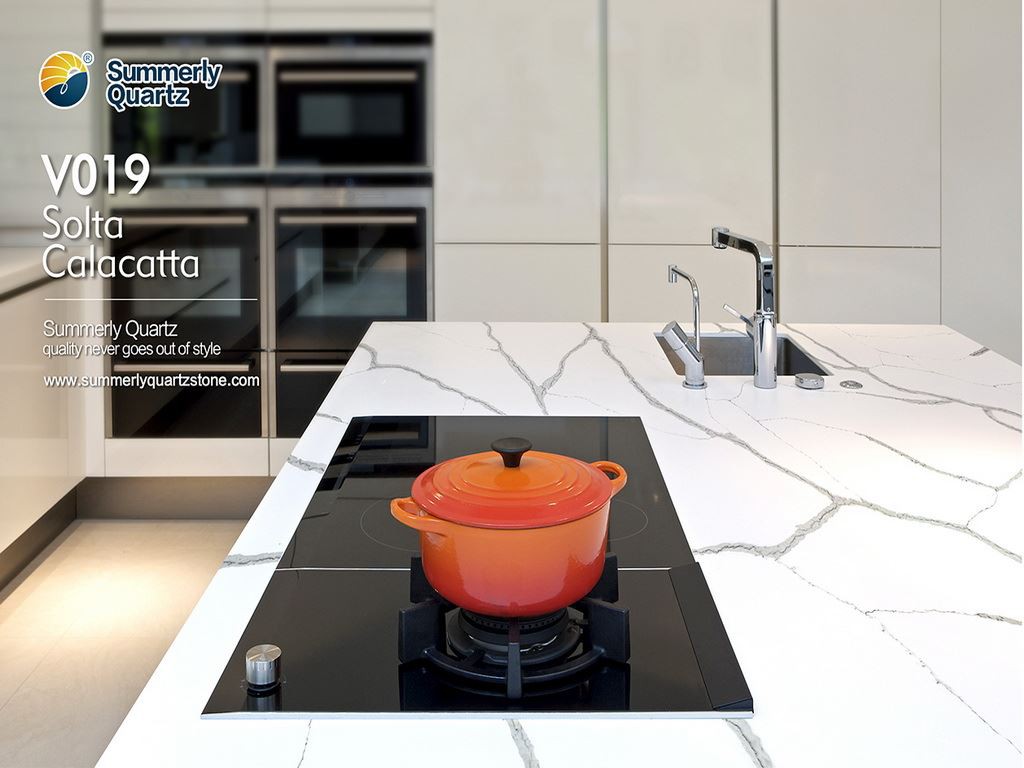
Quartz stone has become a popular choice for various applications, including countertops, flooring, and wall cladding, due to its durability, aesthetic appeal, and low maintenance requirements. However, when considering quartz stone for wet environments such as bathrooms, kitchens, and outdoor areas, there are several factors to keep in mind to ensure optimal performance and longevity. This article explores the key considerations for using quartz stone in moisture-prone areas.
One of the primary reasons quartz stone is favored in wet environments is its excellent water resistance. Quartz is a non-porous material, meaning it does not absorb water or other liquids. This characteristic makes it highly resistant to staining, mold, and mildew growth, which are common issues in wet areas. Unlike natural stones like marble and granite, which can absorb water and require regular sealing, quartz remains impervious to moisture without the need for additional treatments.
Quartz stone is renowned for its durability and strength. It ranks 7 on the Mohs hardness scale, making it resistant to scratches, chips, and cracks. This robustness is particularly beneficial in high-traffic wet areas such as bathrooms and kitchens, where surfaces are frequently exposed to water, cleaning agents, and physical impact. The engineered nature of quartz, which combines natural quartz crystals with resin binders, enhances its structural integrity and longevity.
Maintaining quartz stone in wet environments is relatively straightforward. Its non-porous surface prevents the absorption of liquids, making it easy to clean with mild soap and water. Harsh chemicals and abrasive cleaners should be avoided, as they can damage the resin binders and affect the surface's appearance. Regular cleaning with a soft cloth or sponge is usually sufficient to keep quartz surfaces looking pristine. Additionally, quartz does not require periodic sealing, unlike many natural stones, further reducing maintenance efforts.
While quartz is heat resistant, it is not entirely impervious to high temperatures. Prolonged exposure to direct heat, such as placing hot pots or pans directly on the surface, can cause thermal shock and damage the resin binders, leading to discoloration or cracking. Therefore, it is advisable to use trivets or hot pads to protect quartz surfaces from direct heat.
Quartz stone is sensitive to certain chemicals, particularly those containing bleach, ammonia, and strong acids. These substances can damage the resin binders and compromise the surface's integrity. It is essential to use gentle, pH-neutral cleaning agents to maintain the quartz's appearance and durability. Avoiding harsh chemicals will help preserve the surface's finish and prevent potential damage.
Quartz stone offers a wide range of colors, patterns, and finishes, making it a versatile choice for various design styles. Whether you prefer a classic, contemporary, or rustic look, quartz can be engineered to mimic the appearance of natural stones like marble and granite or to feature unique, custom designs. This aesthetic flexibility allows homeowners and designers to create cohesive and visually appealing spaces, even in wet environments.
Quartz stone is considered an environmentally friendly option due to its sustainable sourcing and manufacturing processes. The production of quartz surfaces often involves the use of recycled materials, such as post-consumer and post-industrial quartz, reducing waste and conserving natural resources. Additionally, the non-toxic composition of quartz, which does not require sealants, contributes to a healthier indoor environment by minimizing harmful emissions.
The cost of quartz stone can vary depending on factors such as quality, design complexity, and installation requirements. While quartz is generally more affordable than high-end natural stones like marble, it is still considered a premium material. The installation process should be handled by professionals to ensure proper fitting and to avoid potential issues such as improper sealing or uneven surfaces. Investing in high-quality quartz and professional installation will ensure the longevity and performance of the material in wet environments.
Quartz stone is an excellent choice for wet environments due to its water resistance, durability, low maintenance, and aesthetic versatility. However, it is essential to consider factors such as heat and UV resistance, chemical sensitivity, and environmental impact when selecting quartz for moisture-prone areas. By understanding these considerations and choosing high-quality quartz products, homeowners can enjoy beautiful, long-lasting surfaces that withstand the demands of wet environments. For more information on quartz stone and its applications, feel free to contact the Summerly Quartz team of experts who can guide you through the selection and installation process.